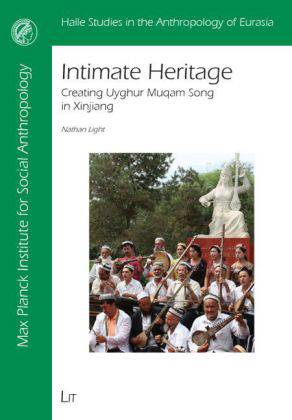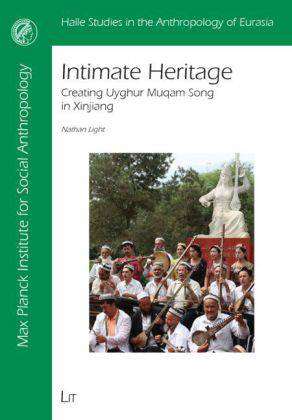
Door een staking bij bpost kan je online bestelling op dit moment iets langer onderweg zijn dan voorzien. Dringend iets nodig? Onze winkels ontvangen jou met open armen!
- Afhalen na 1 uur in een winkel met voorraad
- Gratis thuislevering in België vanaf € 30
- Ruim aanbod met 7 miljoen producten
Door een staking bij bpost kan je online bestelling op dit moment iets langer onderweg zijn dan voorzien. Dringend iets nodig? Onze winkels ontvangen jou met open armen!
- Afhalen na 1 uur in een winkel met voorraad
- Gratis thuislevering in België vanaf € 30
- Ruim aanbod met 7 miljoen producten
Zoeken
Omschrijving
Over the past fifty years a project of culturally reflexive ethnic self-definition has transformed the Sufi poetry of the Uyghur muqam song tradition into a cultural canon used to represent the Uyghur ethnic group within China and on world stages. This book compares the cultural materials, skills, and contexts of traditional muqam performance with those of the `modern' repertoire. Uyghur editors - politicians, scholars, and musicians - have revised this repertoire and created historical discourses around it that reflect new concepts of nationhood and ethnicity. In the muqams they have created a public representation used to promote Uyghur claims to an original, autochthonous piece of world cultural history and a dignified, shared identity. Light's ethnographic study of cultural reflexivity breaks new ground in understanding how the editing project relates to the ethnic politics of cultural intimacy around Sufism, gender, love, oral performance, language, and poetry.
Specificaties
Betrokkenen
- Auteur(s):
- Uitgeverij:
Inhoud
- Aantal bladzijden:
- 352
- Taal:
- Engels
- Reeks:
- Reeksnummer:
- nr. 19
Eigenschappen
- Productcode (EAN):
- 9783825811204
- Verschijningsdatum:
- 30/05/2008
- Uitvoering:
- Paperback
- Formaat:
- Trade paperback (VS)
- Afmetingen:
- 159 mm x 229 mm
- Gewicht:
- 621 g

Alleen bij Standaard Boekhandel
+ 68 punten op je klantenkaart van Standaard Boekhandel
Beoordelingen
We publiceren alleen reviews die voldoen aan de voorwaarden voor reviews. Bekijk onze voorwaarden voor reviews.











